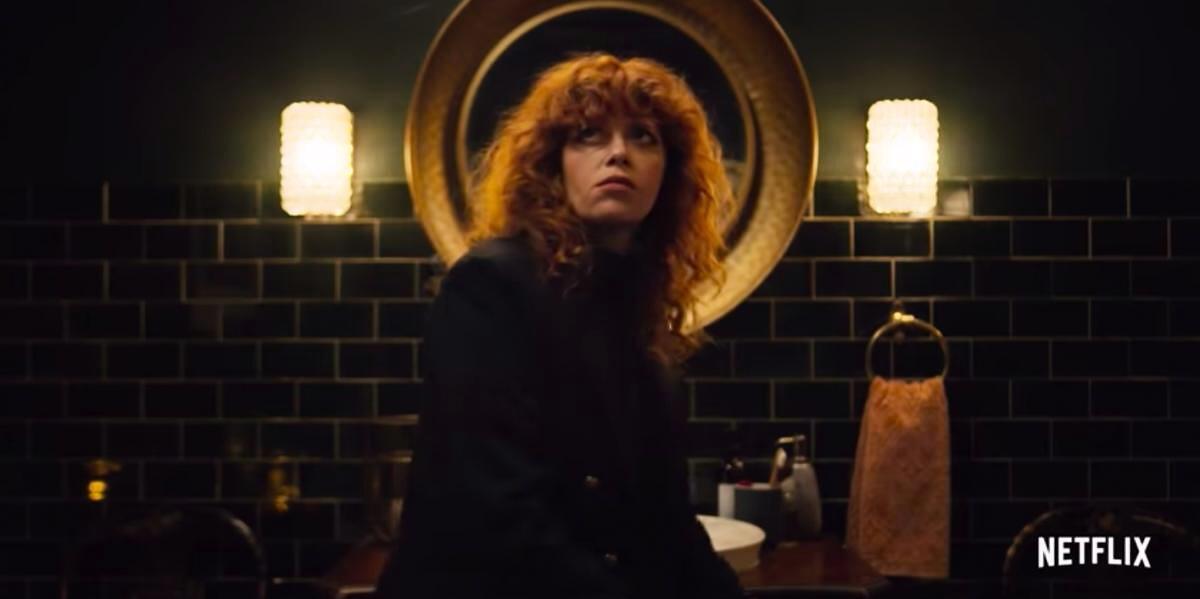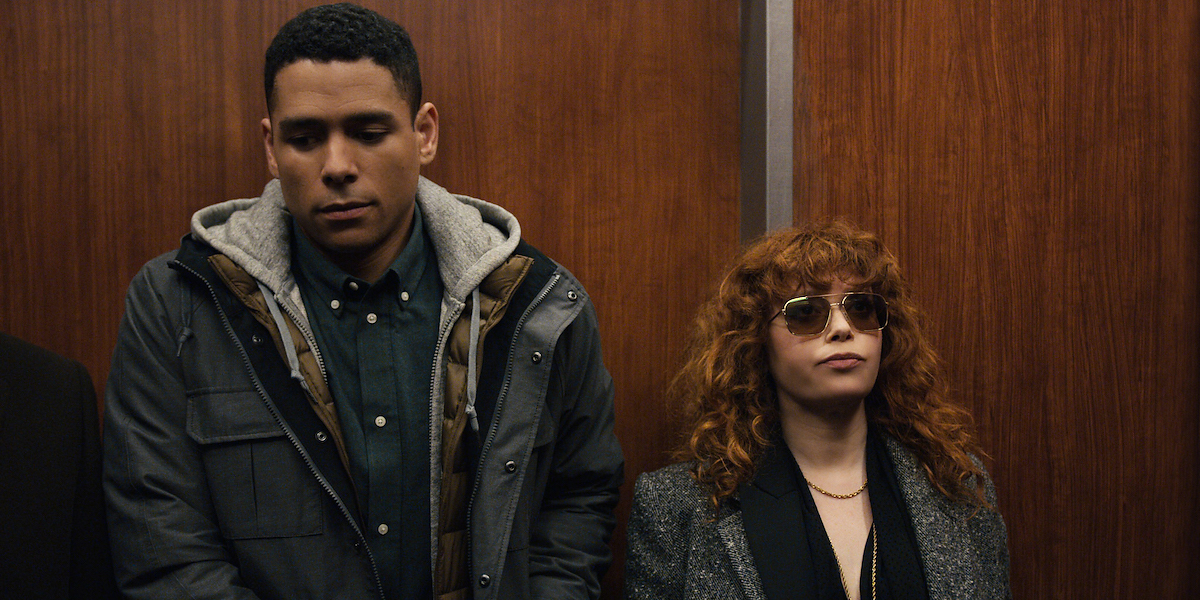
views
Russian Doll
Cast: Natasha Lyonne, Charlie Barnett, Greta Lee, Dascha Polanco, Elizabeth Ashley, Yul Vazquez, Rebecca Henderson
Show-runners: Natasha Lyonne, Amy Poehler and Leslye Headland
“Life’s a Killer” poster in Nadia Vulvokov’s (Natasha Lyonne) apartment is quite suggestive of the impending doom. Death, however, is like a crack in the wall: Nadia is separated from mortality, but not for too long. She gets to live life again, before she dies again, and again, and again...

The set-up is classic. In the opening scene of Netflix’s new show Russian Doll, Nadia is standing in front of the mirror, looking at herself, but not seeing anything. There is constant knocking at the door like the world is telling her it’s time already to step out and face the music. She pulls the trigger, literally, to waltz into a moment that will never end for her. But, she does not know that yet, or she does?
Nadia is self-destructive, constantly inviting trouble. She is a chain-smoker, a drinker, drug addict and outright careless about the way she lives. The food she eats, if and when, is either store bought or are leftovers from someone else’s kitchen. Her existence is a mockery of life itself. Under such circumstances, it’s only justified then that she dies. The pertinent question is can she save herself and others, when she gets to live again?
The series delves on this idea, while Nadia keeps falling prey to a series of painfully hilarious and deadly circumstances. Every time she dies, the story takes us into another yet unexplored dimension of Nadia’s psyche, leading finally to the most troubling event of her life, one that she ought to embrace. In doing so, the series uncovers many layers of Nadia’s personality. Under a fast-talking, vile and a vulgar woman, she is generous, contemplative, smart, tender and redeemable, just not by herself, though.
Alan (Charlie Barnett) enters three episodes into Russian Doll and the series takes an unpredictable twist. Like Nadia, Alan too is stuck in the time loop. In fact, he rather enjoys this mundane routine that life/death has presented him with. Alan says to his girlfriend Beatrice (Dascha Polanco)--“Routine is an incredible thing.”

Nadia and Alan meet inside an elevator that crashes when there’s a power failure and it does not go amiss that they are both part of each other’s near future. The rest of the plot tries to track the parallels between their lives and the reasons leading up to their many deaths together. In searching for the truth they might finally get to be outside this trap.
During their journey, we see that Alan is quite contrasting to Nadia’s nature. Nadia is as forthright as Alan is repressive, or that she is as vulnerable as he is uptight. Their chemistry, throughout the show, is a sparkling constant that does not die. In each other’s company, Alan is vulnerable and Nadia is tender. She makes him realise his worth and in return he is always there, holding a mirror for her, being with her.
Alan’s entry in Russian Doll marks a shift in visual storytelling as well. From deadpan humour that is laced with one-liners and socio-political jibes, the show slowly acquires a more dramatic and poignant quality. Stylistically too, it moves from intense and warm red tone to cold, blue tone. Background score also adjusts to this change. From upbeat and electronic, it becomes more mellow, melancholic and emotional. This bears well for Alan, because as a character, it reflects well with his mental state. Nadia also slowly moves away from her former world of high contrast images to a better-lit figure and finds a comfortable space in Alan’s neutral world.
Since we see Nadia up close and personal, we are inside her head, a fragment of her insanity and as it starts to seem plausible to us, and to Nadia, that her many deaths are in fact real, we become invested in her story, just not in a morbid sense. Episode duration, which is less than 30 min each for this eight part series, goes a long way in making this a tight narrative.
As an actor, Lyonne walks the opposing planks of her characteristic personality with grace. She is hilarious, while she is dramatic and scared. She is like a fuse that goes off with the slightest of ignition or sometimes even without it. As Russian Doll's writer, Lyonne has given Nadia quite a handful to deal with, yet it never feels like there’s too much of her.
The show’s secondary characters include Greta Lee as Maxine, Elizabeth Ashley as Ruth and Yul Vazquez as John Reyes. They play a significant role in propelling the story but do not get too devoted in Nadia’s life. In fact, she keeps them at a distance till the time she realises that in doing so she can never get the emotional closure that she so desperately requires. All of these characters gel humorously well with the bigger narrative that is at play.
Russian Doll, the latest Original by Netflix, starring Natasha Lyonne and Charlie Barnett in lead roles, is a dark yet entertaining take on the purpose of existence and everything else that comes along with it. Natasha Lyonne, Amy Poehler and Leslye Headland have developed the series and are also the show-runners. Conceptually, Russian Doll plays close to the idea of absurdity, but manages to shine behind Lyonne’s terrific playact and a strong, multi-layered teleplay. Watch it for its clever writing and terrific performances.
Rating: 3/5
Follow @News18Movies for more

















Comments
0 comment